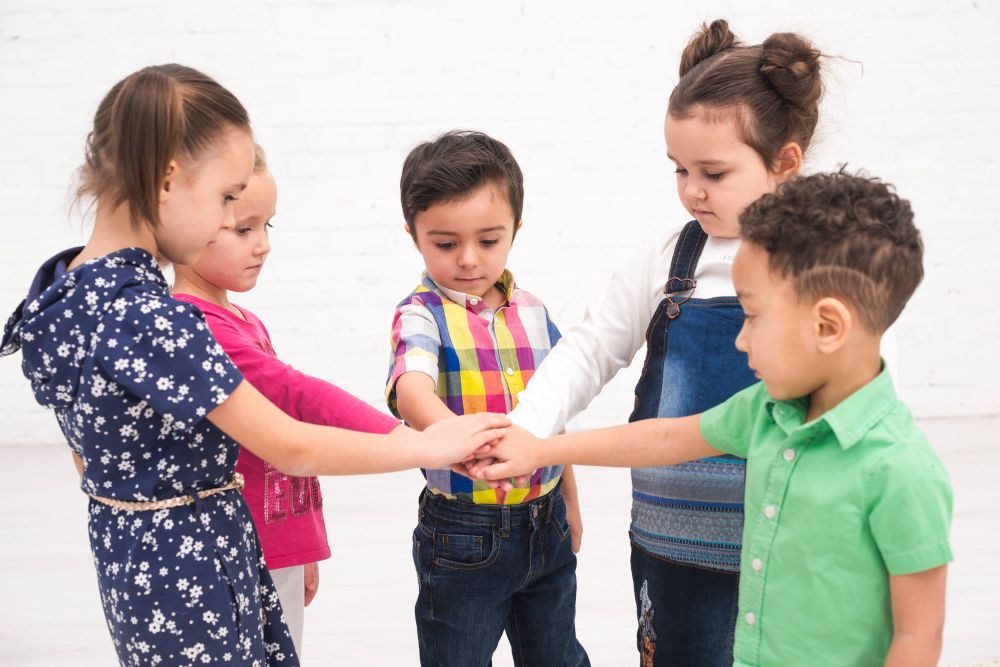Fostering social skills in preschool or at an early age is crucial as it lays the foundation for relationships, social interactions and social development in early childhood. Here are some strategies and benefits of fostering social skills in preschool:
Strategies to develop preschool social skills:
- Role-Playing and Positive Reinforcement: Teachers and parents can role-play or act out different social scenarios, showing children how to interact, share, and resolve conflicts.Praise and reward positive social interactions to reinforce good behavior.
- Cooperative Play Activities and Guided Play:Games that require teamwork and cooperation help children learn to work together.Especially games like building blocks or group storytelling.Teachers facilitate guided theater plays by suggesting roles and interactions to ensure positive experiences.
- Storytelling, Discussion and Reading: Social stories or books are read and discussed in class focusing on situations ,characters actions and feelings ,so that children understand and empathize with others. After reading, discussing the story and asking children how they would feel or act in similar situations.
- Group Activities like circle time and other projects: Activities where children sit in a circle and take turns speaking help them practice listening and taking turns.Working on projects in small groups fosters collaboration and communication.
- Social Skills Curriculum with role play and practice: Programs or lessons specifically designed to teach social skills, such as sharing, taking turns, and empathy are part of their curriculum. Children are allowed to practice social skills in a controlled environment before using them in real-life situations.
- Recognizing Emotions and Teaching Empathy:Children can be taught to recognize and name their own emotions and the emotions of others.Helping children to understand how others might feel in different situations.
- Conflict Resolution Skills and mediation: Teaching children to identify problems, brainstorm solutions, and agree on a plan of action.Guiding children through the process of resolving disputes calmly and fairly.
Benefits of Social Development in Early Childhood
- It is essential for effective communication as children learn to express themselves clearly and listen to others.
- Children maintain good and positive relationships with peers and adults due to strong social skills.
- Learning to recognize and manage emotions helps children cope with challenges and reduces behavioral problems.
- Successful social interactions increase and boost children’s confidence and self-worth.
- Socially skilled children are often more engaged in school due to improved cooperation and participation and have better academic success.
- Early social skill development equips children with the tools to prepare themselves for future challenges and navigate complex social situations
- Reduces Behavioral Issues in children who can communicate their needs and resolve conflicts .
Practical Examples
| Role-Playing Activities Acting out Sharing toysAsking to join a gameEnacting a role of comforting a friend | Group Art Projects Working on mural Art projectsSharing MaterialsCraft work | Emotion Charts Charts with facial expressions |
Conclusion:
Fostering social skills in preschool requires consistent effort and a supportive environment, but the benefits are significant and long-lasting. It’s essential that these skills are practiced at home as well. Children need to integrate social skills into their education from early childhood. Socialization in preschool covers only a certain percentage of the necessary skills; the remaining development occurs through practice in various settings. For children to fully develop their social skills, they must be consistently reinforced both at home and in other aspects of their lives.

